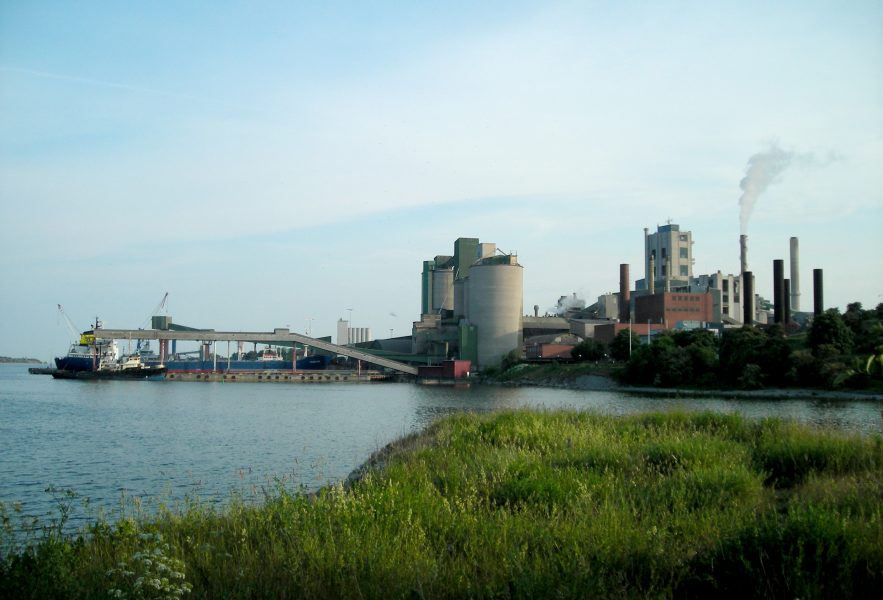
image: Wikimedia commons
Gotland has a lot of limestone. Limestone is largely composed of calcium carbonate, a key ingredient in making cement. In a chemical reaction called hydration, water and cement combine to create concrete.
Cementa is a cement production company that provides cement to create the concrete used in building. One of the things that concrete helps build is apartment buildings. Sweden needs apartment buildings – the pace of building housing is such that every Swedish government promises / brags about how much housing it will create or has created. Housing, of the lack of it, has been blamed for everything from segregation to bad school results to rising crime rates. So it’s a big deal that the court of property and environmental affairs (mark- och miljödomstolen) overturned its own, earlier, positive decision and said no to Cementa’s application to continue mining limestone in Slite, Gotland.
Originally, the court had said yes. Cementa has been mining limestone in Slite for over a hundred years and the court said it could continue to do so. However, the Swedish Environmental Protection Agency (Naturvårdsverket), Gotland’s Botanical Association, the County Administrative Board of Gotland, and the Swedish Society for Nature Conservation (Naturskyddsföreningen) appealed the decision. On the second time around, the court found that Cementa’s impact on Gotland’s groundwater level had not been sufficiently investigated, and denied Cementa’s application for continued mining.
The outcry
The Swedish Construction Federation (Byggföretagen) is the trade association for private construction companies and employers. They were not late in decrying the decision, saying that 280,000 jobs were being risked. Cementa provides over half, and even up to 75% of all cement in Sweden, and it follows therefor that up to 3 of 4 building projects are at risk of not happening. Layoffs may start as early as August, according to SvD.
also carbon dioxide of course
It must also be mentioned that the Cementa factory at Slite currently stands for about 3% of Sweden’s carbon dioxide emissions. However, Heidelberg Cement, of which Cementa is part, only recently announced that the Slite facility was slated to be reorganized for carbon capture and become carbon neutral already 2030. Also this technology is threatened.
to the rescue?
Minister of many hats – Business, Industry and Innovation – Ibrahim Baylan has confirmed that he is set to invite interested parties to a meeting on the matter. Naturally and quite rightly so, judicial independence limits any particular actions, so who knows what he can do.
Meanwhile, Cementa is appealing the appeal.

